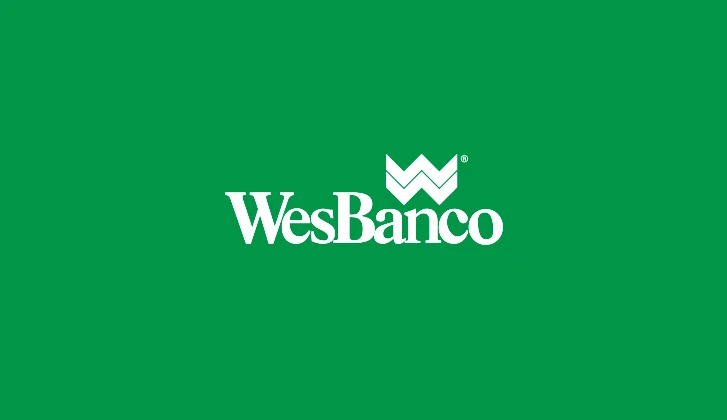NOTICE: Internet Explorer was retired by Microsoft on June 15th, 2022 and is no longer supported. This could change how you access Online Banking.
Need a bit of help?

Welcome to WesBanco Wellness: a Series for Your Financial Health. Here we will tackle budgeting, debts, safe web practices and more to help get you into the best financial shape of your life.
If you don’t make enough money to cover your basic expenses, there are safeguards in place to help you make ends meet. There are several programs that can assist you with paying for necessities like food, healthcare, and even housing.
CARES Act ExpansionsThe CARES Act adds additional assistance to those who have been impacted by the COVID-19 pandemic. First, it expanded availability to unemployment insurance for those who may not usually qualify, such as those diagnosed with COVID-19 or who are caring for someone unable to go to school or regular childcare because of closures. Second, it added an additional $600 on top of regular unemployment benefits until July 31st, 2020 as well as 13 additional weeks assistance. |
Food Services
If paying for food is your main concern, there are a couple of programs to help you out.
The Supplemental Nutrition Assistance Program, or SNAP, (once more commonly known as food stamps) is meant to offer individuals and families access to funds to help pay for groceries each month. SNAP eligibility depends on your household and its income.
With SNAP, you’ll be given a special debit card preloaded with your qualified amount. Each month, funds will be added to the card, which you can use at grocery stores, convenience stores, and in some cases even farmer’s markets. SNAP only works for certain food and products, so other items will still need to be paid for out of your pocket. Still, it’s a great way to ease the burden of your food budget, especially when paying for produce, meat, dairy, and other nutritionally dense foods to keep you healthy.
If you don’t qualify for SNAP, or you’re pregnant, just had a baby, or have young children, you might qualify for the Special Supplemental Nutrition Program for Women, Infants and Children, or WIC. It’s especially designed to benefit women who are pregnant, who have just had a baby, or children up to age five. WIC helps to pay for nutritional basics like baby formula, milk, produce, and cereal. WIC can also give you access to counseling and services for new moms and children.
Healthcare Services
Medicaid is a program designed to provide coverage for individuals and families that cannot afford health insurance. Medicaid eligibility is determined by household income and other factors, such as age, pregnancy, or disability. According to the Medicaid website, over 65 million people are covered by Medicaid, making it the largest source of medical coverage in the country.
If you’re eligible for Medicaid, you’ll indicate that as your health insurance when you require medical care. Not all providers accept Medicaid, so it’s important to verify before you receive services. Medicaid can also help pay for prescription drugs and mental health services. If you don’t qualify for Medicaid but you have children, they could qualify for the Children’s Health Insurance Program, or CHIP. CHIP covers kids in families who make too much to qualify for Medicaid, but still require assistance to help pay for their kids’ insurance until age 19. CHIP doesn’t cover as much as Medicaid does, but it’s still a good option to help relieve some of the burden of paying for health insurance for families.
Housing Services
Most of the assistance the government offers for housing applies to those who rent their homes. If you can’t afford rent and you meet eligibility requirements, for example, you might qualify for the Housing Choice Voucher Program. It’s basically a voucher paid directly to the landlord each month to subsidize the cost of rent. The landlord then charges tenants the remaining amount, making rent more affordable for low income families.
Most of the government services that help with housing require you to fulfill specific eligibility requirements. There are services for rural rentals and operational farm tenants, for example, or government-owned properties that benefit the homeless or very low-income individuals.
Financial Services
Temporary Assistance for Needy Families, or TANF, is sometimes more commonly known as welfare. It’s designed to support families who can’t afford basic needs but are on a path to self-sufficiency. A state-run program, TANF offers cash-assistance to the families who need it most. TANF can also offer help for child care, transportation, and even employment training.
Each state determines its own eligibility requirements and TANF assistance, but in general its designed to benefit families with children. Each state also decides how to spend TANF funds from the federal government, which usually means a combination of cash and assistance.
If you’ve lost your job through no fault of your own, you may qualify for short-term Unemployment Benefits through your state. It can help you pay bills and stay afloat as you look for a new job. If you’re permanently unable to work due to an injury or disability, you can apply for Disability Benefits. Disability benefits are paid through the Social Security Administration and help with cash assistance for people who are injured or disabled and are expected to stop working for a year or more. You’ll need to provide medical records and employment information to prove your eligibility, but it can help if you’re physically unable to work on a long-term basis.
No one ever plans to lose their job, fall short on rent, or not be able to afford health insurance. But, if you need assistance, it’s important to know that there are services available to you. Knowing where to turn when you’re in need can help you when you’re struggling and give you the tools you need to get back on your feet.
Content is for informational purposes only and is not intended to provide legal or financial advice. The views and opinions expressed do not necessarily represent the views and opinions of WesBanco.
While we hope you find this content useful, it is only intended to serve as a starting point. Your next step is to speak with a qualified, licensed professional who can provide advice tailored to your individual circumstances. Nothing in this article, nor in any associated resources, should be construed as financial or legal advice. Furthermore, while we have made good faith efforts to ensure that the information presented was correct as of the date the content was prepared, we are unable to guarantee that it remains accurate today.
Neither Banzai nor its sponsoring partners make any warranties or representations as to the accuracy, applicability, completeness, or suitability for any particular purpose of the information contained herein. Banzai and its sponsoring partners expressly disclaim any liability arising from the use or misuse of these materials and, by visiting this site, you agree to release Banzai and its sponsoring partners from any such liability. Do not rely upon the information provided in this content when making decisions regarding financial or legal matters without first consulting with a qualified, licensed professional.
Looking for Savings?
The perfect companion to your WesBanco checking account. All of our accounts are available with a Companion Savings account with no minimum balance requirement or monthly maintenance fee when monthly statements are combined and accounts have identical ownership.
Companion Savings
Free Mobile Deposits

